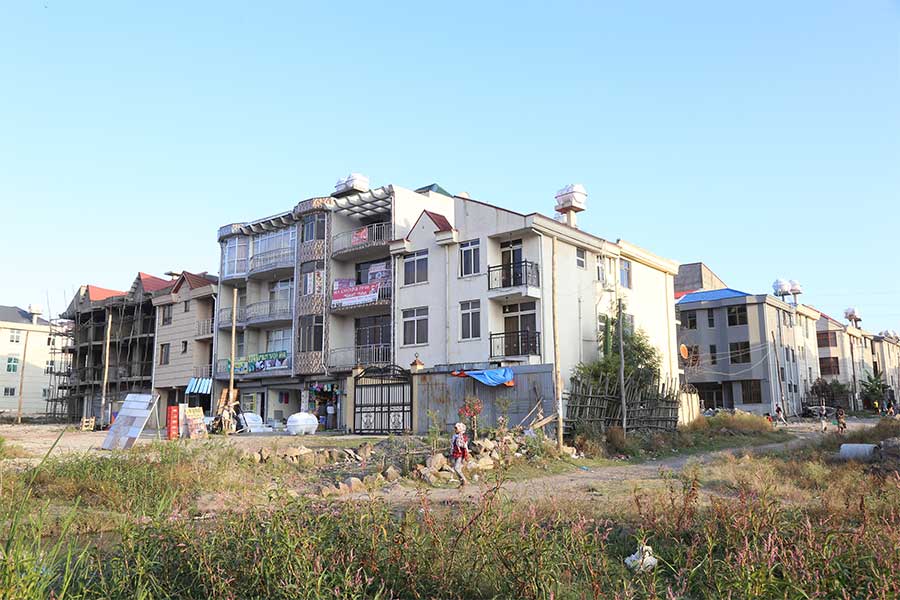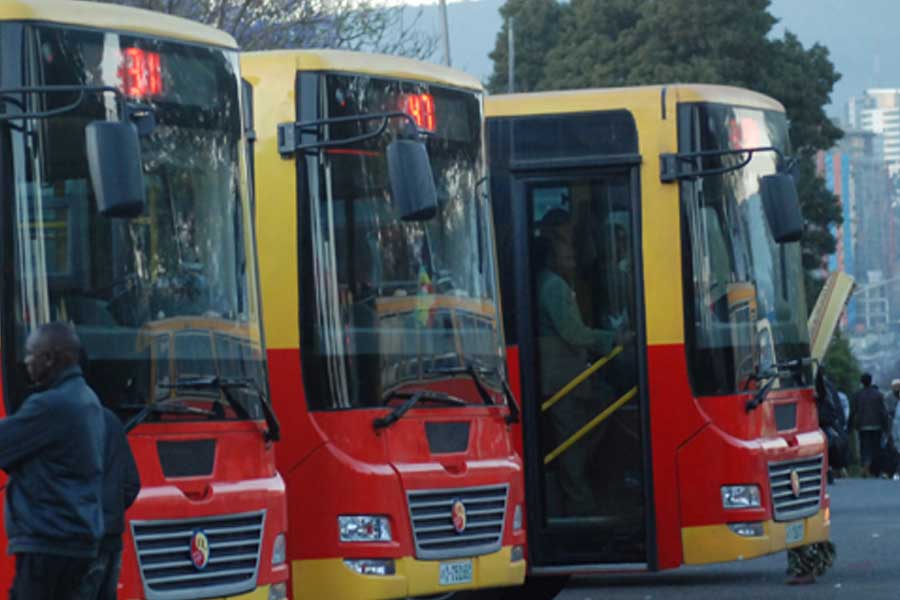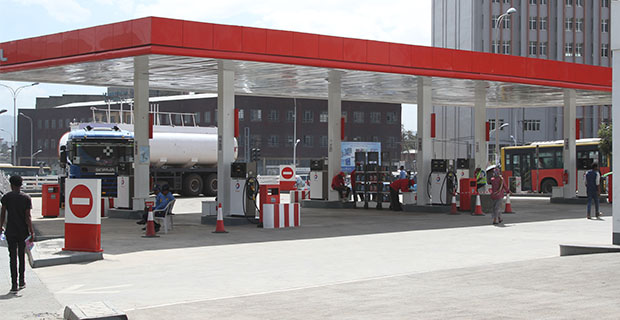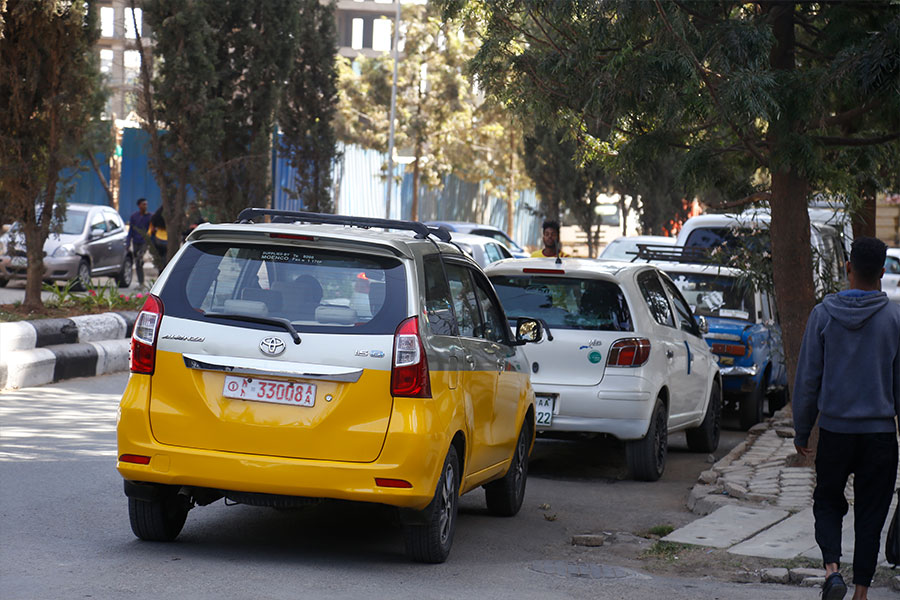
Fortune News | Sep 03,2022
Jul 13 , 2025
By Ahmed T. Abdulkadir
Every morning in the Jemo neighbourhood, in the western outskirts of Addis Abeba, starts with music, not the song a passer-by chooses, but the one that chooses her. Cafés line the dusty road and hang horn-loaded speakers above the doorway, each tuned to a different station or streaming list. Ethio-pop spills into Afrobeats, colliding with yesterday’s ballad, all of it amplified in a contest of sheer decibels.
The owners believe rhythm sells more coffee than aroma. They reach for the volume knob and twist.
Add the rev of minibuses jockeying for the curb, the bleat of horns from drivers whose patience evaporated two lanes back, and the clatter of scaffolding on rising condos. The everyday soundtrack of Addis Abeba is a mixtape, both chaotic and strangely instructive. Listen, and the noise reads like a barometer of how fast the city is growing and how slowly it is managed.
Each layer of sound marks a gap in the civic machinery. The steady roar of diesel generators betrays a power grid that cannot keep up. Honking is a chorus of frustration with traffic signals that do not work and a transport system that leaves commuters stranded. Loudspeakers outside shops and market stalls form the anthem of an informal economy where being heard too often means being louder than the neighbour.
The city has had a noise pollution problem for years, but the gravity of the issue becomes clear in the numbers. A 2014 study in Mercato, the sprawling open-air market, found average daytime noise between 62 and 84 decibels, with Saturday peaks topping 100, on par with a rock concert. The limit for commercial zones is 65 decibels. Nineteen of the 20 sites examined broke that rule. Neighbourhoods around Bole Michael frequently logged readings above 90, the level at which hearing damage starts.
Shopkeepers insist that music sets high draws in customers, though no one has shown proof. What researchers have demonstrated is the price paid by the human body. Chronic exposure is linked to insomnia, elevated stress hormones, cardiovascular disease and lower productivity. A city cannot plausibly aim for middle-income status while bombarding its residents with the soundtrack of a factory floor.
Urbanists sometimes call Addis Abeba a “time machine” calibrated by sound. Move from the fringes toward Meskel Square, and the decibels fall. Traffic noise remains stubborn, yet the café speakers mellow and street vendors shift from amplifiers to conversation. The gradient echoes a broader pattern. Sprawled peripheries built faster than they can be serviced, side by side with planned downtown blocks that still remember zoning.
Indeed, the noise map shadows the land-use map. Commercial clusters bleed into residential alleys, and the city’s patchwork of kebeles leaves few buffers. Zoning codes exist mostly on paper. The Addis Abeba Environmental Protection Authority has posted World Health Organisation-based limits and even published a colour-coded chart for each district. Parliament went further, inserting a clause in the Advertisement Proclamation that outlaws amplified promotions “causing sound pollution.”
On the street, enforcement whispers. In 2024, the Authority flagged 924 businesses for violations and penalised only 13pc, roughly one in eight. Fines are small enough to be absorbed as a cost of doing business, and the inspection team is too thin to canvass 14 districts with regularity. Nothing captures the absurdity like a Woreda Peace & Security Administration pickup rolling through Jemo, a speaker strapped to its roof, exhorting residents to “turn down the noise” while a pop track pounds behind the announcement, volume wins again.
Sound, planners argue, is a species of soft infrastructure as important as light, air or water pressure. When it is unmanaged, it frays public trust and signals misplaced priorities. Residents should not have to fight for the right to quiet, nor should musicians and merchants be silenced. Good cities choreograph their sound so that work, leisure and sleep get a share of the airwaves.
Addis Abeba, a metropolis that prides itself on speaking many languages, should now prove it can listen. It will take zoning lines, monitoring, and compliance enforcement that sting more than ears. Yet, the fix starts with something simpler. An agreement that volume is not the same as vitality. Until then, the capital will keep shouting over itself, and the morning soundtrack will remain less a welcome than a warning.
PUBLISHED ON
Jul 13,2025 [ VOL
26 , NO
1315]

AhmedT. Abdulkadir (ahmedteyib.abdulkadir@addisfortune.net) is the Editor-in-Chief at Addis Fortune. With a critical eye on class dynamics, public policy, and the cultural undercurrents shaping Ethiopian society.

Fortune News | Sep 03,2022

Fortune News | Nov 02,2019

Life Matters | Sep 04,2021

Radar | Apr 21,2024

Fortune News | Dec 14,2019

Sunday with Eden | Nov 01,2025

Fortune News | Jun 26,2021

Fortune News | Sep 28,2019

Radar | Nov 12,2022

Fortune News | Jul 02,2022

Photo Gallery | 179762 Views | May 06,2019

Photo Gallery | 169962 Views | Apr 26,2019

Photo Gallery | 160921 Views | Oct 06,2021

My Opinion | 137203 Views | Aug 14,2021

Dec 22 , 2024 . By TIZITA SHEWAFERAW
Charged with transforming colossal state-owned enterprises into modern and competitiv...

Aug 18 , 2024 . By AKSAH ITALO
Although predictable Yonas Zerihun's job in the ride-hailing service is not immune to...

Jul 28 , 2024 . By TIZITA SHEWAFERAW
Unhabitual, perhaps too many, Samuel Gebreyohannes, 38, used to occasionally enjoy a couple of beers at breakfast. However, he recently swit...

Jul 13 , 2024 . By AKSAH ITALO
Investors who rely on tractors, trucks, and field vehicles for commuting, transporting commodities, and f...

Nov 1 , 2025
The National Bank of Ethiopia (NBE) issued a statement two weeks ago that appeared to...

Oct 25 , 2025
The regulatory machinery is on overdrive. In only two years, no fewer than 35 new pro...

Oct 18 , 2025
The political establishment, notably the ruling party and its top brass, has become p...

Oct 11 , 2025
Ladislas Farago, a roving Associated Press (AP) correspondent, arrived in Ethiopia in...

Nov 2 , 2025
The National Bank of Ethiopia (NBE) has scrapped the credit-growth ceiling that had s...

Nov 2 , 2025 . By SURAFEL MULUGETA
The burgeoning data mining industry is struggling with mounting concerns following th...

Nov 2 , 2025 . By YITBAREK GETACHEW
Berhan Bank has chosen a different route in its pursuit of a new headquarters, opting for a transitional building instea...

Nov 2 , 2025 . By BEZAWIT HULUAGER
Nib International Bank S.C. has found itself at the epicentre of a severe governance...